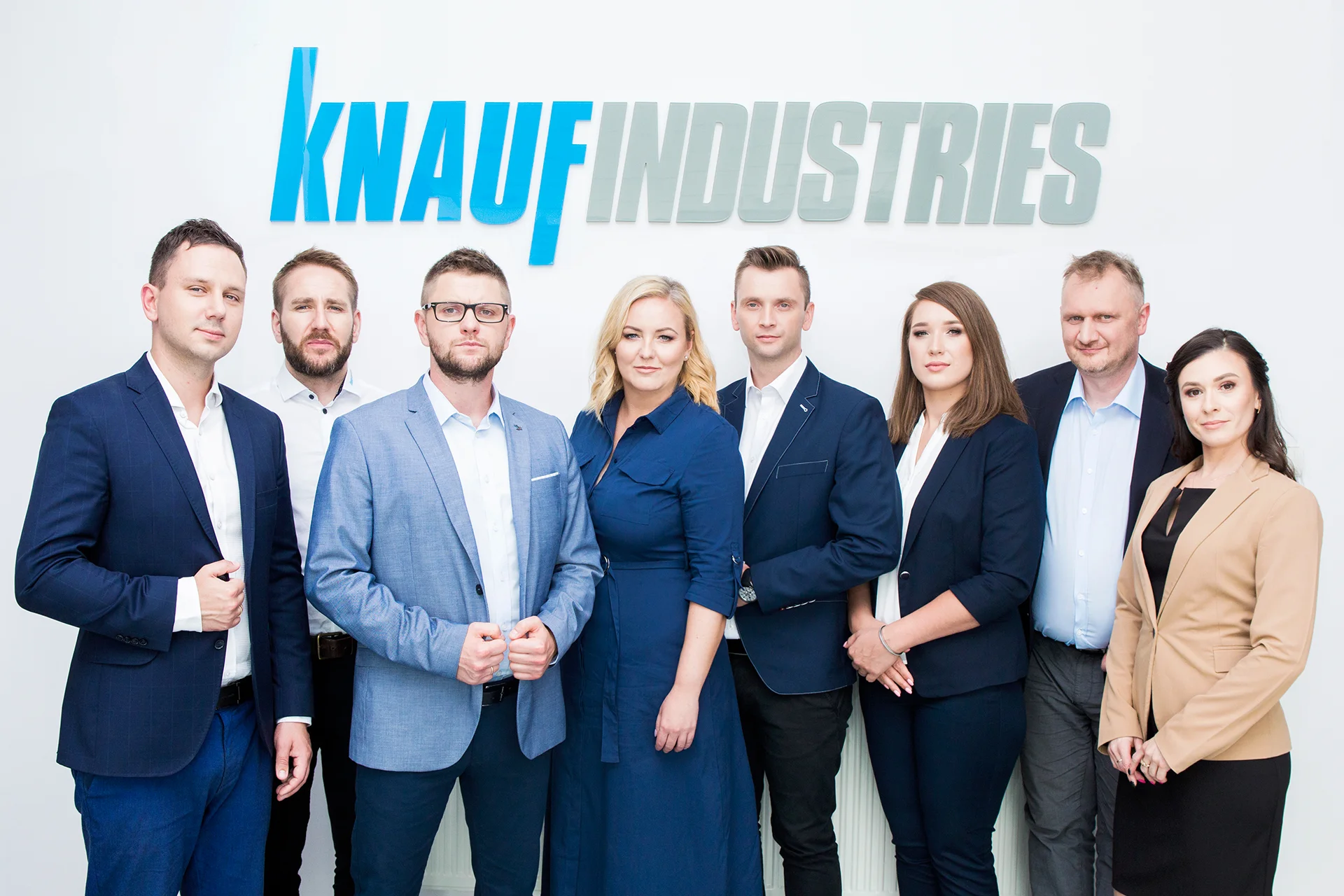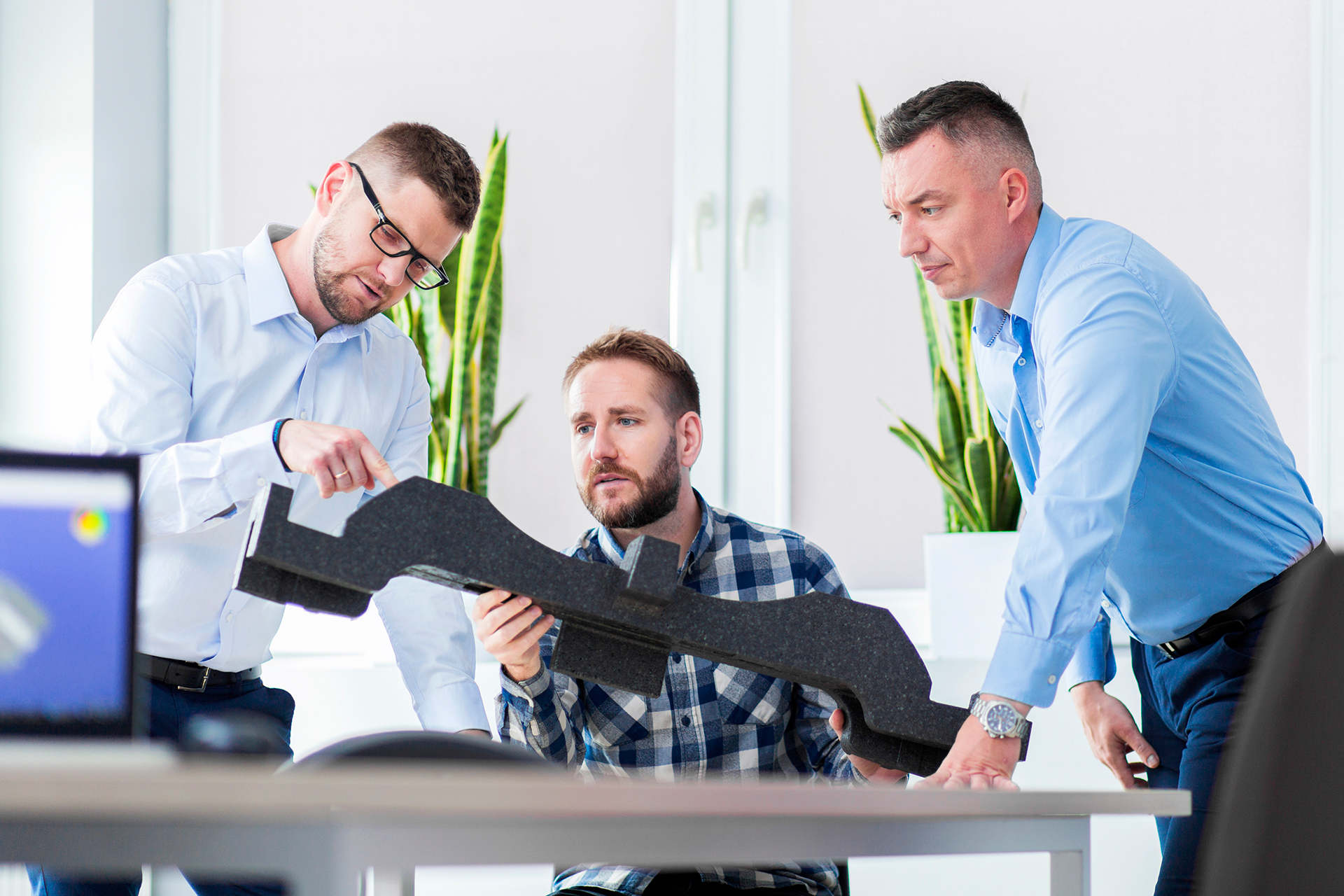Currently, in the field of human resources management, much is being said of the soft approach, which was perfectly described by Steve Jobs: ”it doesn't make sense to hire smart people and then tell them what to do; we hire smart people so they can tell us what to do”. We speak to Alicja Zmorzyńska, Sales Director at Knauf Industries and winner of the Knauf Leadership Award 2019, about the humanistic aspects of business.
MRs. Alicja, in your everyday work with your team, you apply the soft approach to management. How would you rate its effectiveness?
Building an atmosphere of mutual trust has always been the most important goal for me. I believe that employees should be given the autonomy to act, so that they can make decisions and take responsibility for themselves. This is the only way to create a harmonious and mature team.
What successes have you been able to achieve thanks to this strategy?

When I started working at Knauf Industries in 2017, I received the task of restructuring the sales department, which was concerned with various sectors of the industrial market. I decided to adopt a new, pro-client strategy. My team and I were successful in building an effective, collaborative team that acquires new clients but also cares for the needs of our steady customers. We are particularly proud of several achievements. We signed a large contract for 2021 with a leading automotive manufacturer, introduced innovations in our HVAC offer as well as completely new solutions for the segment of electric car batteries.
You received an award for best team leader at Knauf. What does one have to do to achieve such success?
I would like to stress, in the strongest terms, that the award I received is really in honor of the work of our whole team, which consists of twelve people. They are high-class specialists in their fields. On a day-to-day basis, they are involved in all stages of a project, from handling requests for quotation to preparing plastic parts for production.
So a leader's success actually depends on the work of their team?

Decidedly yes, substantive knowledge and experience play a critical role in our work, but a motivational atmosphere that allows these elements to be put to full use is no less important. It is thanks to this atmosphere that we acquire new orders for our two Polish factories in Mszczonow and Wrocław with full engagement and enthusiasm and effectively diversify Knauf Industries’ client portfolio. I also try to bring soft skills into the team. We are scattered throughout Poland, so creating bonds within the team is all the more significant, since they foster the exchange of thoughts and efficient cooperation. I like building friendly relations and inspiring others to act.
So, in your everyday work, you have to combine business negotiation skills with a technical approach?
That’s right, all of my team members have the technical knowledge that is indispensable for understanding the products that we offer to various industry sectors. These are diverse markets, such as automotive, household appliances/electronics, HVAC (heating, ventilation, air conditioning) or “tailor-made” packaging solutions. Beyond that, we use two plastics processing technologies – thermoplastic injection and shape molding of EPP and EPS components. Before starting cooperation with a client, we conduct a scrupulous analysis of the project’s feasibility and select the most adequate solutions. This is a complex task, because every client has individual expectations. For example, automotive concerns have their own manufacturing standards. We must know and apply them.
And what do you think about so-called hard management? Do you apply it sometimes in your work?
I believe that constant control and issuing of orders do not serve employee development. An atmosphere of mutual trust, respect and support is the foundation. I am a proponent of the approach best described by the words of well-known motivational coach Zig Ziglar – “you build people, and then people build your business”. Employees who are given the freedom to act take satisfaction in their own accomplishments but also learn from their own mistakes. I give a high degree of freedom, but I never lose sight of established business objectives. Every so often, I look at everything from above, and when I perceive a new opportunity, I set the course, and together, we go one step further.
You manage a team that works at different locations in Poland on many projects. Surely this sometimes creates situations that cause stress or disharmony. How do you solve them?
Of course, tensions and conflicts do occur in our work. They can always be solved in a soft, diplomatic way, “absorbing stress” and leading to a “win-win” situation. It is enough to talk and ask ourselves the question “why are we doing this?”. Employees engage more eagerly when they see what significance their work has and how they are contributing to the achievement of the larger goal. I also apply the values that I believe to be important in relations with my employees in contacts with clients. For me, the division into B2B and B2C contacts is really non-existent. The other side isn’t a contractor, co-worker or client – they’re always human, who can be inspired, supported and with whom one can collaborate on the principle of mutual trust. And trust is the foundation of all relationships.